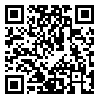Articles accepted at the time of publication
Back to the articles list |
Back to browse issues page
1- Department of English Language and Literature, Faculty of Literature and Languages, Alzahra University, Tehran, Iran , khadijeh.lotfi7@gmail.com
2- Department of English Language and Literature, Faculty of Literature and Languages, Alzahra University, Tehran, Iran
3- Department of English, Faculty of Literature, Alzahra University, Tehran, Iran
2- Department of English Language and Literature, Faculty of Literature and Languages, Alzahra University, Tehran, Iran
3- Department of English, Faculty of Literature, Alzahra University, Tehran, Iran
Abstract: (3742 Views)
Pre-service teacher education programs play a pivotal role in the formation and evolution of teachers' identities, wherein both formal and hidden curriculums exert significant influences (Beauchamp and Thomas, 2009). This qualitative study delves into the development of Language Teacher Identities (LTIs) among student teachers at Farhangian University, with a particular focus on the reformed curriculum.A qualitative research method was used. A total of 27 female student teachers shared their experiences through individual and focus group interviews. Thematic analysis was used for analyzing the interviews. The findings revealed mismatches between the student teachers’ envisioned identities and the curriculum’s expected identity, leading to feelings of cognitive unpreparedness. The study also highlighted the significant roles of both formal and hidden curriculums in shaping teacher identity, with both positive and negative changes observed in cognitive, social, and emotional aspects. The implications drawn from the study’s findings provide insights into curriculum design and teacher education programs, offering guidance on how to effectively support the construction of teacher identity and raise student teachers’ awareness of this transformative process.
Keywords: hidden curriculum, Identity development, identity tention, Farhangian University, reformed curriculum
Article Type: مقالات علمی پژوهشی |
Subject:
Teacher Training
Send email to the article author
| Rights and permissions | |
 |
This work is licensed under a Creative Commons Attribution-NonCommercial 4.0 International License. |








